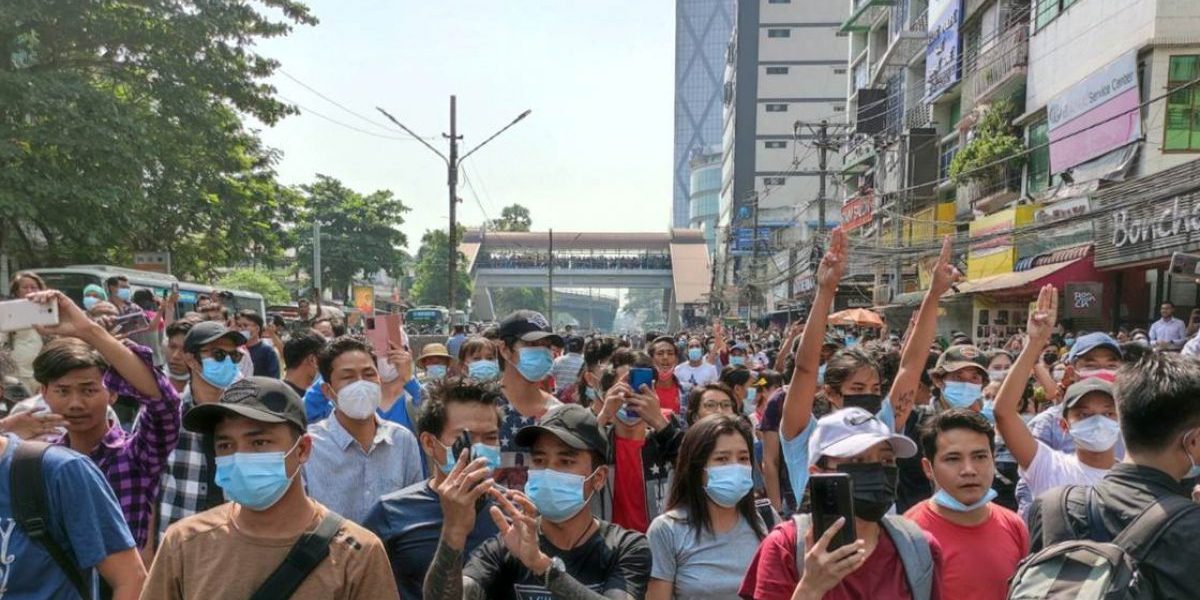Protesters broke out in Myanmar chanting ‘We demand democracy’

Pro-democracy protests broke out in Myanmar’s largest city on Saturday, with thousands of people taking to the streets of Yangon in the first major organized demonstration since the military seized power in a coup earlier this week.
The crowd, many of whom could be seen waving flags and holding banners, called for the military to release recently deposed civilian leader Aung San Suu Kyi, and other democratically-elected lawmakers, who were detained in pre-dawn raids Monday.
Chants of “We demand democracy” could be heard coming from the crowd as they marched close to downtown Yangon.
Dozens of police, some in riot gear, had initially attempted to block the protest route, forcing the crowd to change direction. Witnesses describe the crowd expanding in size, before appearing to disperse after several hours. A number of smaller, scattered protests remain ongoing. At Yangon University, several hundred mostly young people have gathered and continue to chant. Police in riot gear are present, but traffic is moving through the area and the roadblocks previously set up by police are gone.
During the earlier large-scale march, passers-by could be seen giving the three-finger salute of opposition to army rule, in apparent solidarity with those demonstrating. Others were seen applauding and handing out water to both protesters and police in what one witness described as a way of defusing tension.
Resistance to the coup had initially proved limited, due in part to widespread communications difficulties, as well as fears of a further crackdown. Internet monitoring service NetBlocks said Saturday that the country was in the midst of a second “national-scale” internet blackout as the military attempted to secure its grip on power.
According to NetBlocks, real-time network data showed connectivity had fallen to 54% of ordinary levels, and users had reported difficultly getting online.
Witnesses told media that internet connection has been intermittent on Saturday, though some people were still able to stream video from the march in Yangon on social media platforms.
The fall in connectivity follows moves to block access to social media platforms Facebook, Instagram, and Twitter, as well as a number of prominent local news outlets.



